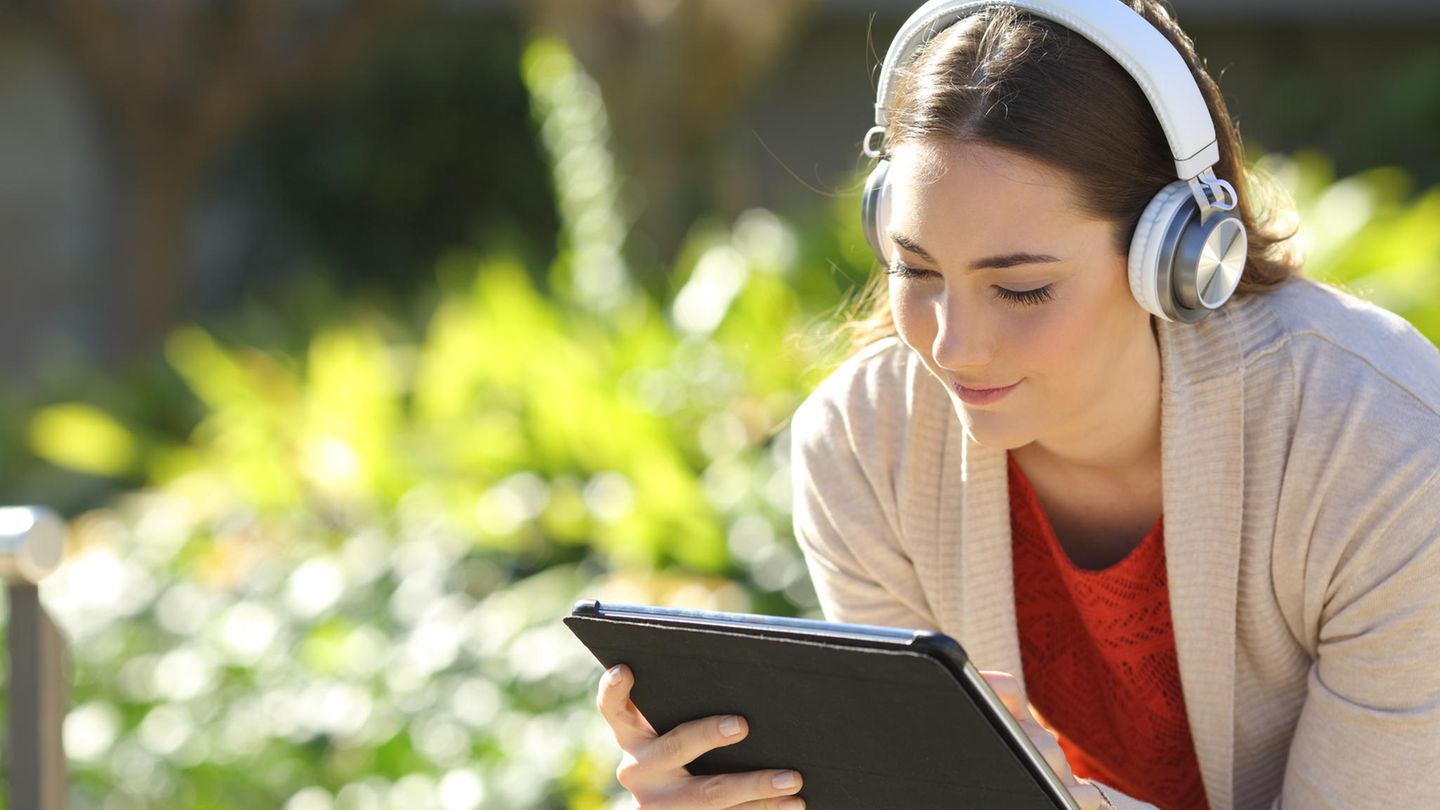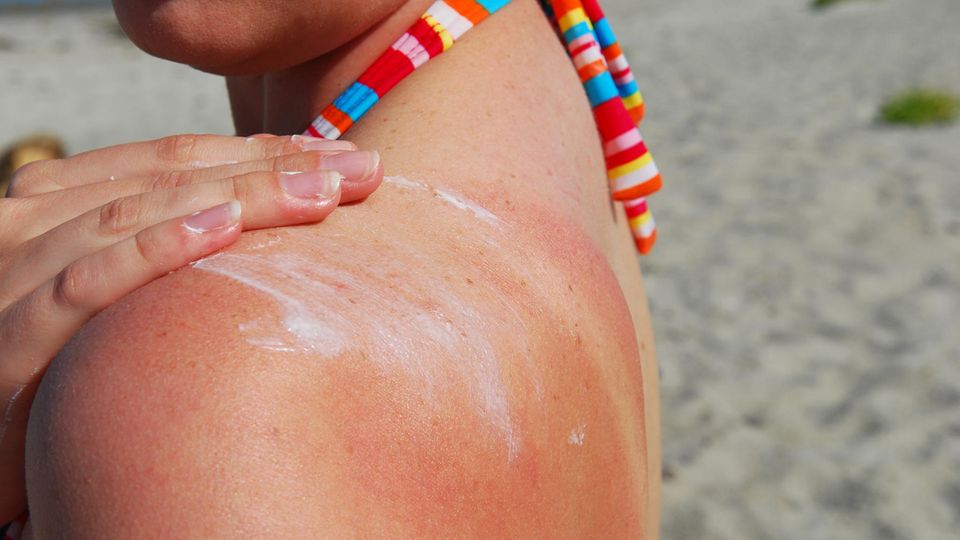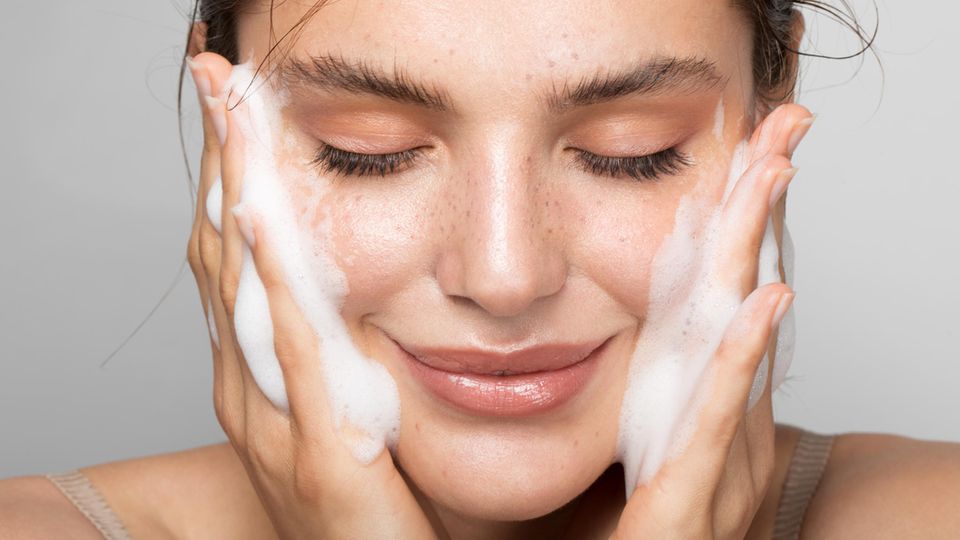Expert Yael Adler
Whoever is on the screen a lot is exposed to blue light: how harmful is that for the skin?
We spend many hours a day in front of screens that emit blue light. Can this also damage our skin or lead to skin aging?
© iStock / Getty Images
We all spend a lot of time in front of our computer and smartphone screens, which emit blue light. Dermatologist Yael Adler explains how this affects our skin.
More and more face creams in the drugstore have a sticker that says “anti-blue light filter” or “anti-blue light”. But does the artificial blue light from smartphones and the like really damage the skin? Dermatologist Yael Adler clarifies in conversation with him stern about blue light and reveals why she does not recommend anti-blue light creams.
What is blue light exactly?
There is natural and artificially generated blue light. In addition to UV radiation, blue light is part of solar radiation. So it occurs in daylight. However, artificial light sources such as smartphone or computer screens also emit blue light.
Does blue light damage the skin?

Yael Adler is a dermatologist with a practice in Berlin.
© Thomas Duffé
There is still scientific disagreement as to whether artificial blue light is harmful to the skin. However, it is known that blue light can accelerate skin aging, says dermatologist Yael Adler, summarizing the current state of knowledge. There is also still disagreement in science as to whether the screen light is aggressive at all. That sometimes depends on how high the intensity of the radiation is and how far someone is from the screen. “We know that radiation becomes less dangerous with distance. Anyone who is at least 30 centimeters away from the screen should be on the safe side in any case.” An example makes it clear: “Working on screens shouldn’t really be dangerous, is the result of a study by Beiersdorf AG. Anyone who then goes for a walk outside in Hamburg at lunchtime gets the equivalent of a lot more daylight, which also contains blue light, within a few minutes than with screen work lasting weeks or months.”
The blue light from screens also affects day-night perception and the sleep hormone melatonin. Our body interprets it as daylight. If you look at the smartphone screen for a long time in the evening, you slow down the formation of the hormone melatonin, which makes it harder to fall asleep and the nighttime repair is worse. “Melatonin is not only the sleep hormone, but also a strong gene guardian and strong antioxidant. During the night repairs, genetic material is repaired, if the system is not overloaded, the body can heal a lot on its own. It’s always a question of the dose, the pollutants, the have an effect on the skin, blue light is part of that, but in my opinion not to be overestimated.” Yael Adler’s tip: Use the function that filters out the blue light on the screen at least in the evening.
Should I use anti-blue light creams?
There are many creams on the shelves of drugstores that promise an “anti-blue light effect/filter”, but there is no data on whether this really helps, explains Yael Adler. “Antioxidants are mixed into the creams and the manufacturers hope that it will help. There is no harm in using it, consumers can save the money for these products.” But being careful and protecting the skin is always the right thing to do: “A plant-based diet that is colorful provides many antioxidants. And in this way we can support the repair mechanisms and easily absorb protective substances for the skin.”
How can I protect my skin from premature aging and damage?
The dermatologist recommends a tablespoon of tomato paste with a little oil every day, the lycopene it contains supports the skin and protects against skin aging. A glass of carrot juice with a little oil daily provides provitamin A. It also extends the skin’s own protection from the sun by a factor of two to three. In addition, the skin turns slightly orange – which makes the complexion look attractive. “Green tea, especially matcha powder tea, contains the antioxidant epigallocatechin gallate. It is considered a genetic repair agent and counteracts skin aging. The same applies to the chlorophyll it contains. These are efficient anti-aging agents,” says Yael Adler.
However, the greater danger for the skin is UV radiation, since this is much more aggressive than blue light and can cause skin cancer in addition to skin aging. If you want to protect your skin from the sun, you should stick to this simple sentence: “Avoid, dress, use lotion.” The dermatologist explains: “The usual filters in sunscreen do not block blue light. But if you wear physical sunscreen or powder make-up, they act like a kind of parasol on the skin. They can also block blue light.”
This article contains so-called affiliate links. Further information are available here.



